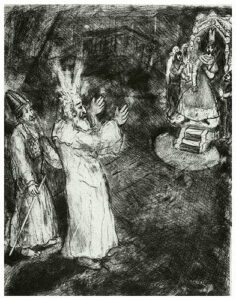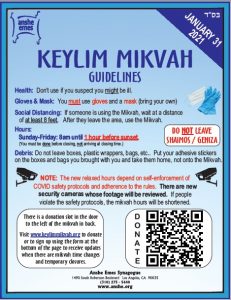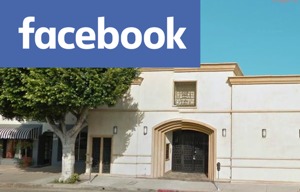Parsha Va’Era
A. Summary
1. Hashem Reassures Moshe. Moshe questioned how Hashem could have allowed even greater suffering to befall the Jews after Moshe and Aharon met with Pharaoh. In response, Hashem revealed himself to Moshe as “Hashem”, the One whose promises to the Patriarchs would now be fulfilled, for the Jews would be freed from bondage and taken to Israel. Their spirits crushed, the Jews refused to listen to Moshe as he revealed Hashem’s message. Moshe, in turn, questioned how he could convince Pharaoh if he couldn’t convince his own people, especially when his speech was impaired. Hashem again assured him that Aharon would be his spokesman and that Pharaoh would not let the Jews leave until Hashem inflicted severe punishments upon the Egyptians.
2. Moshe & Aharon Meet With Pharaoh. Moshe (then 80) and Aharon (then 83) again met with Pharaoh. Knowing that he would be impressed by such wonders, Aharon cast down his rod and it turned into a serpent. However, the Egyptian magicians were able to duplicate the feat and, despite the fact that Aharon’s rod swallowed their rods, Pharaoh remained unimpressed.
3. The First Seven Plagues
a. Blood. After warning Pharaoh, Aharon followed Moshe’s instructions and waved his rod over the Nile, causing it to turn into blood, killing the fish and causing an unbearable odor. The Egyptians, facing a water shortage, begged the Israelites (whose water supply was unaffected) for water. The plague lasted seven days, but when the Egyptian magicians duplicated it, Pharaoh would not budge.
b. Frogs. Aharon stretched out his hand over the Nile and frogs swarmed the land. Pharaoh pled with Moshe to stop the plague, promising to let the Jews leave and bring sacrifices to Hashem. However, as soon as Moshe complied, Pharaoh refused to fulfill his promise.
c. Lice. Aharon struck the dust with his rod, turning the dust into lice which swarmed over the Egyptian people and cattle. This time, however, the Egyptian magicians were unable to duplicate the feat and were forced to admit Hashem’s superior powers; however, Pharaoh remained obstinate.
d. Wild Animals. Moshe’s warning to Pharaoh that the Egyptians’ homes would be invaded by wild animals went unheeded. However, after the invasion devastated the land, Pharaoh agreed to let the Jews bring sacrifices to Hashem in Egypt; Moshe, however, insisted that they be allowed to journey into the wilderness for three days to bring such sacrifices. Pharaoh agreed, but again recanted when the plague stopped.
e. Cattle Disease. After Pharaoh again failed to heed Moshe’s warning, the Egyptian cattle were stricken with disease; however, Pharaoh still wouldn’t give in.
f. Boils. In Pharaoh’s presence, Moshe sprinkled ashes towards the heavens, which turned into dust and, in turn, boils on the Egyptian people and their animals. Pharaoh still, however, wouldn’t relent.
g. Hail. After Pharaoh was warned, a torrent of hail (i.e. boulders with fire on the inside and ice on the outside) hit the Egyptian people, crops and cattle. This time, Pharaoh acknowledged his error, but when the hail ceased, his heart hardened.
B. Divrei Torah
1. LilMode U’lilamed (Rabbi Mordechai Katz)
a. Moshe’s Gratitude. Why did Moshe ask Aharon to perform the first three plagues (i.e., blood, frogs and lice)? According to Rashi, Moshe wanted to show his gratitude to the forces which helped him in the past (i.e., the waters of the Nile spared his life and the dust of the earth protected him by burying the overseer), and was thus hesitant to perform plagues involving them. We, too, must be grateful to the forces and people who have helped us.
b. “Bechira” (“Free Will”). Rambam teaches that Hashem grants each of us free will and, as a result, we are responsible for our actions and rewarded and punished accordingly. But did Pharaoh have free will? If not, how could he be held responsible for his actions? Actually, anyone seeing the plagues no longer had free will to deny Hashem’s existence. To counteract the plagues’ influence, Hashem restored free will to Pharaoh, who could thus make his decisions regardless of Hashem’s obvious presence.
c. The Purpose Of The Plagues. Why couldn’t Hashem bring one severe plague? Since the purpose of the plagues was twofold: (a) to punish the Egyptians measure-for-measure; and (b) to impress the Jews that this was the result of Hashem’s Hand and not merely a one-shot act of nature, thereby preparing them to receive the Torah.
d. And you shall teach your children. Part of the observance of Pesach — in fact the reason for reciting the Haggaddah — is recounting the story of Pesach to children. The unusual customs and foods of the Seder are meant to evoke questions from children and we must be ready to respond to their questions. Children are essential links in the chain which keeps Torah tradition strong and growing. Parents who raise a child endowed with an appreciation for Torah and mitzvos are considered the real heros of Jewish survival and their work can never be sufficiently praised. As the Talmud teaches, “the world is preserved only by the innocence of the school children.” (Shabbos 119). As Mishlei 22 teaches, “instruct the child in that to which he is inclined; even in his old age, he will not part from it.”
2. The Chassidic Dimension (the Lubavitcher Rebbe, Rabbi Menachem M. Schneerson, z’tl) (the Lubavitcher Rebbe, Rabbi Menachem M. Schneerson, z’tl)
a. Egyptian Exile: Prelude To The Torah. When one undergoes suffering, one ceases to be self-absorbed and is able to transcend the limits of one’s mortal logic (i.e., to undergo self-nullification) and absorb the spirituality necessary to accept the Torah and perform its mitzvos.
b. Matzos and Four cups of wine. The Parsha uses 4 expressions to describe Hashem’s redemption of the Jewish people — “I will release you . . . save you . . . liberate you . . . and take you unto Me as a Nation.” The Four cups of wine commemorate these expressions. But, why do we only have three matzos? The matzos represent the first 3 expressions, which represent “redemption from Above” (i.e., through Hashem’s — not their own — efforts, the Jews were compelled to leave Egypt). Wine represents “redemption from Above and within” (i.e., in addition to Hashem’s efforts, it was up to the Jews to prepare themselves to be worthy to be called Hashem’s Nation and accept His Torah). Thus, Matzos are “tasteless”, while wine has taste and is enjoyable.
3. Growth Through Torah (Rabbi Zelig Pliskin)
a. View suffering as a tool for self-improvement. After the hail fell, Pharaoh said to Moshe “I have sinned this time, the Almighty is righteous and I and my people are wicked”. While he admitted his guilt under the pressure of the plague, he recanted after the plague subsided. Why? Rabbi Noson Tzvi Finkel of Slobodka notes that this was because Pharaoh only viewed suffering from a limited perspective (i.e., merely as a punishment for his wrongs). By recognizing Hashem’s hand in our suffering, and that it includes a strong element of kindness since it can propel us to improve ourselves, we can use it to motivate us to examine our lives and strive to reach new heights.
b. Remember your resolutions and insights. Pharaoh said to Moshe, “Entreat Hashem that there will no more hail and I will let you go”. Rabbi Yeruchem Levovitz notes that Pharaoh actually meant it at the time. But as soon as the plague let up, he forgot his good intentions. In the midst of suffering or challenges, we often have high ideals and make worthy resolutions. We must strive to remember them even after our suffering or challenge has lifted.
c. To give encouragement to others, speak in a way to which they can relate. “And Moshe spoke so to the Children of Israel, and they did not listen to Moshe for anguish of spirit and hard work.” Rabbi Meir Simcha HaCohen explains that they didn’t listen to the previous message which Moshe gave them (i.e., that they would come into the land of Israel). This can be understood that when someone is suffering much, all he/she wants to hear is that his suffering will be removed. He may not be ready to hear that he will have much good fortune and success in the future. Thus, we read in the thirteenth verse that Hashem told Moshe to just tell them that they would be taken out of Egypt, without any mention of a bright future. (Meshech Chochmah). This is an important principle in trying to give others emotional support and encouragement. If you paint a picture which is beyond their present ability to relate to, your words will not be comforting even if you have the best of intentions. Telling someone who is deep emotional distress, “don’t worry, all will be well in future,” might not have a positive effect. Instead, show them that you understand and empathize with their present pain and suffering, and help provide them with advice and encouragement to get out of their present situation.
4. Wellsprings of Torah (Rabbi Alexander Zusia Friedman)
Eventually, Hashem’s words will sink in. “And Hashem spoke to Moshe and to Aharon and gave them a charge to the Children of Israel. . .” Even though the Children of Israel refused to listen, for impatience of spirit and for cruel bondage, Hashem commanded Moshe and Aharon to keep speaking to them, for Hashem’s words must, of necessity, leave a profound impression. They may not take effect all at once, but eventually they must accomplish their purpose, for holy words can never be lost on man. (Sfas Emes, z’tl). (As Mattis Czapnik told over at his Bar Mitzvah, this is why the Shema says “let these matters which I [Hashem] command you today be upon your heart,” and not “in your heart. That is, these matters may not “soak in” immediately since we may not be receptive to them at that particular moment; however, if we leave them “on our heart,” they will be ready and near to be absorbed when our hearts are more receptive to opening up to them.) We must reach out to others, to share Hashem’s; even if the effect is not immediate, they will eventually take root.
5. Darash Moshe (Rav Moshe Feinstein, z’tl)
Fulfilling One’s Personal Mission. “This was the Aharon and Moshe.” Rashi comments that in some places Aharon is mentioned before Moshe and in other places the order is reversed. This is to teach us that they were equal. Yet, since Moshe was the greatest prophet and sage of all time, to such an extent that Hashem chose to give His holy Torah to the Jewish people through Moshe, how can it be said that Aharon, for all his merits, was Moshe’s “equal”? This can be answered in several ways. First, although Moshe’s power was greater than Aharon’s, they were still considered equals since they were both needed for the redemption of the Jews. By analogy, even though one business partner may have a greater role than the other, if the business can not function without both of them, they are equals in that sense. Second, like Moshe, Aharon performed Hashem’s will throughout his life to the utmost of his ability and will complete faith. Both Moshe and Aharon devoted themselves completely and wholeheartedly to the things which they were given to do. Moshe and Aharon, even though they differed in their abilities, could be considered equals since they both achieved their full potential. In Hashem’s scales, success is measured by how well we fulfill our personal mission.
6. Love Thy Neighbor (Rabbi Zelig Pliskin)
We should sympathize with others’ suffering even when we are suffering. “Also I [Hashem] have heard the outcry of the Children of Israel. Rabbi Moshe Sofer explained that “also” meant not only Hashem, but that the Jewish people also heard each other’s suffering even in the midst of their own individual suffering.
7. Majesty Of Man (Rabbi A. Henach Leibowitz)
Time To Reflect. “And they [the Jews] did not listen to Moshe because of impatience of spirit and cruel bondage.” Hashem told the Jews that He would redeem them from slavery, take them out of Egypt and give them the Torah. The S’forno explains that Hashem also guaranteed that if they absorbed this promise into their consciousness, they would be worthy to enter Israel. However, because of the heavy burden of slavery, they failed to properly contemplate the meaning of their redemption and, as a result, only their children (i.e., the next generation) were allowed to enter Israel. How could Hashem punish them for not properly contemplating the meaning of their freedom while they were in the midst of slavery? Because the human mind is capable of great feats, even when doubled over with work. One of the favorite techniques of the “Yetzer Hara” (evil inclination) is to keep us so busy and pre-occupied that we continue in our daily routine, oblivious to our true life goals and any wrongdoing. (A businessman once approached Rabbi Yisrael Salanter, said that he only had 15 minutes a day to study Torah and asked him what he should study. Rabbi Salanter replied that he should study Mussar and, as a result, he would soon realize that he had more than 15 minutes a day to study.) We too must take time to examine our priorities and actions, to guarantee that our lives are truly fulfilling Hashem’s will.
8. Kol Dodi on the Torah (Rabbi Dovid Feinstein)
Hashem’s Mercy. “And Elokim spoke to Moshe and He said to him I am Hashem.'” The name “Elokim” connotes the quality of judgment; the name “Hashem” connotes the quality of mercy. At the beginning of the Parsha, Hashem is referred to by both names. Why? At the end of last week’s Parsha, Pharaoh intensified the Jews’ workload, leading them to complain bitterly. Hashem’s address to their grievances at the beginning of this Parsha can be understood to mean that He originally decreed that they would spend 400 years in exile in Egypt, but that after 210 years, He decided to redeem them. However, in order to do so, Hashem intensified their bondage to make it as though they served the “full term” of exile. Even though it “appeared” He acted harshly, it was clearly eventually for their good. When something unpleasant happens, we must remember it is really for our own good. The Talmud (Berachos 60b) says that we should be happy when we recite the blessing “Baruch Da’yan HaEmet” (“Blessed is the True Judge”), which is said upon hearing bad news. Even when a particular event appears to be “judgment”, it also contains “mercy”. There is a parable of a little boy who gets lost in a crowd and stands crying for his parent. When his parent finally finds him, the parent chastises him for running off on his own. Yet, despite being chastised, the boy smiles when he is reunited with his parent, for he knows that his parent still cares for him. When things appear to be going badly for us and we have moments of suffering, we should be happy that Hashem is not ignoring us and eventually we will see that the things which appear to us to be bad now are actually for our benefit.
9. In The Garden Of The Torah (the Lubavitcher Rebbe, Rabbi Menachem M. Schneerson, z’tl)
Seeing And Believing (Recognizing Hashem’s Revelation To Us). “Mitzrayim”, which is related to the Hebrew word for “boundaries” or “limitations”, is a paradigm for what exile is and the essence of our spiritual challenge. The world was created as a dwelling place for Hashem and our souls are a part of Hashem. Yet, we often overlook this as we are caught in the exile of our material world and daily routine which shapes our thoughts. However, Hashem doesn’t allow this exile to continue indefinitely. In Mitzrayim, Hashem revealed Himself through the plagues, thereby transforming the Jewish people’s thinking. But what about us? Hashem said “I revealed myself to Abraham, Issac and Jacob”; Rashi comments “to the Patriarchs”. His comment, which seems redundant, is actually reinforcing that, by revealing Himself to our forefathers, Hashem make the awareness of His existence a fundamental element in their make-up (and the make-up of their descendants for all time). In every generation, Hashem sparks this awareness by performing acts transcending the natural order; some are obvious to us (e.g., the Gulf War, Entebbe, re-birth of Israel, the fall of Communism); others are not. By these acts, Hashem reveals Himself to us, allowing us to transform the limits of our “exile” and take in the awareness of His presence. We must open our eyes.
Next Week: Bo




 Visit the group and request to join.
Visit the group and request to join.
